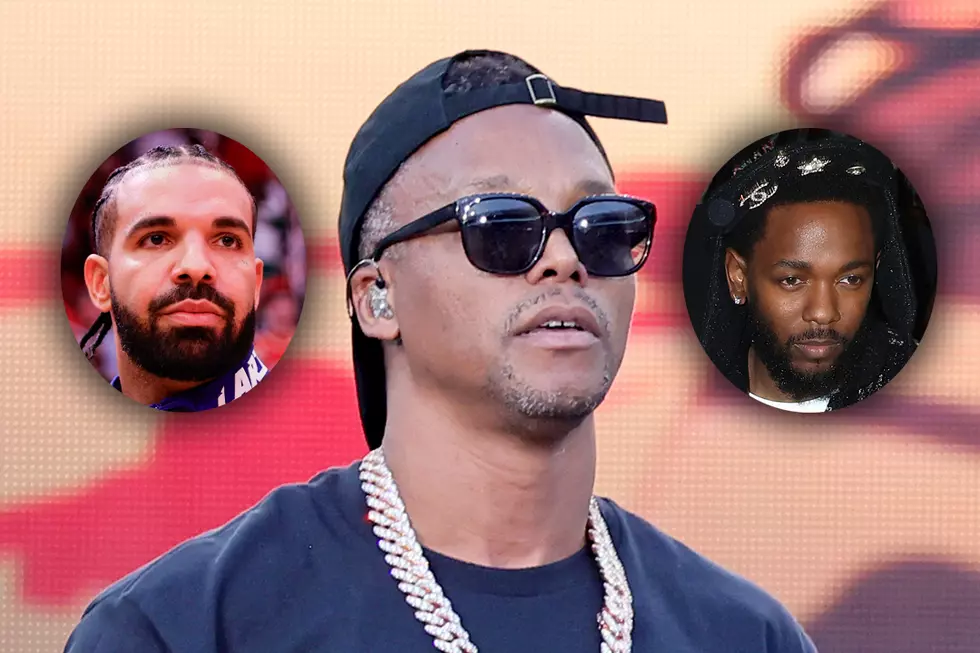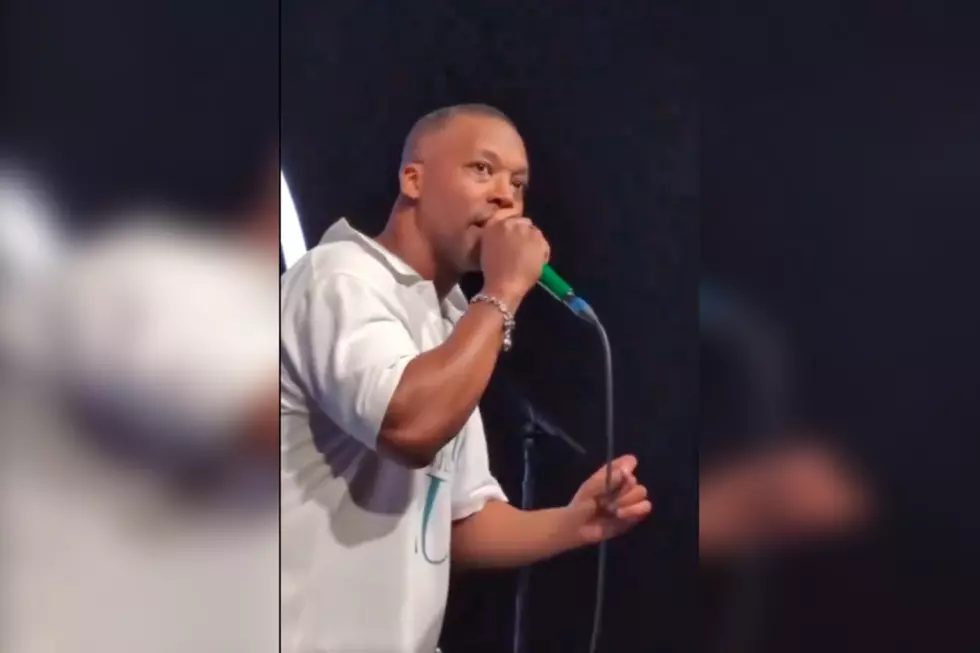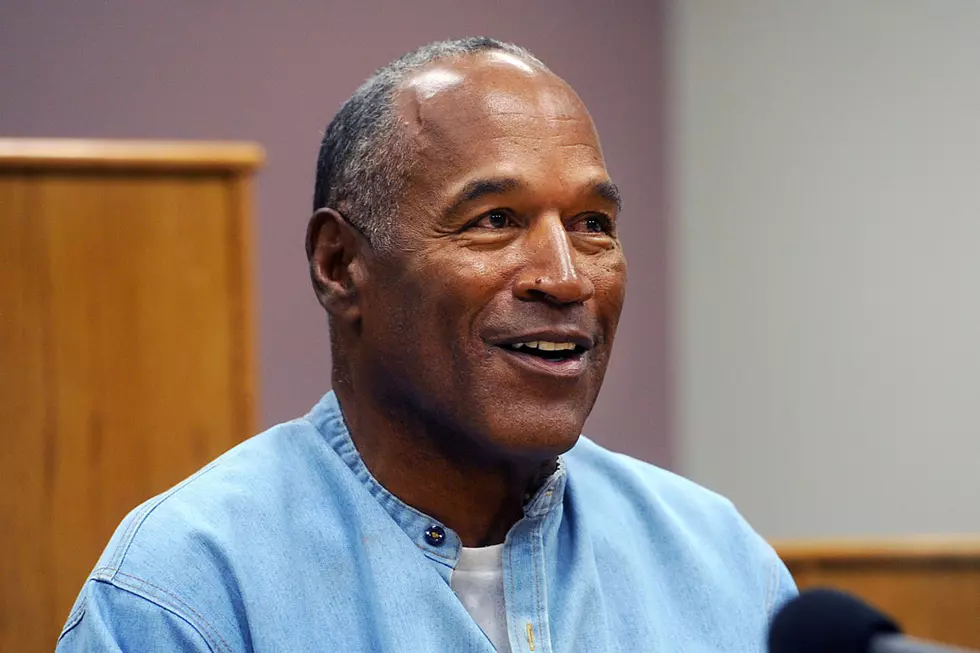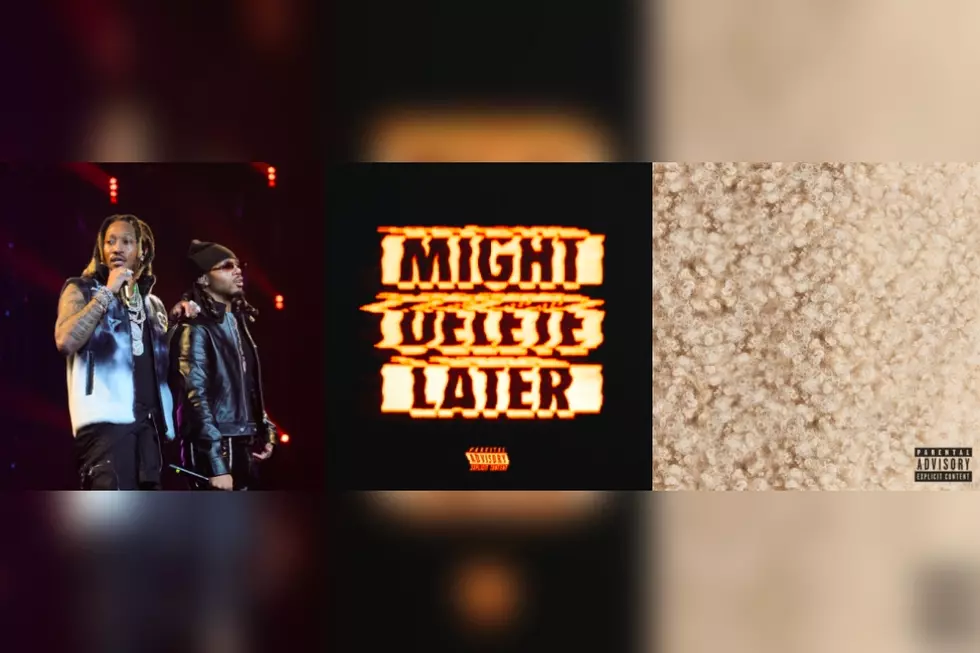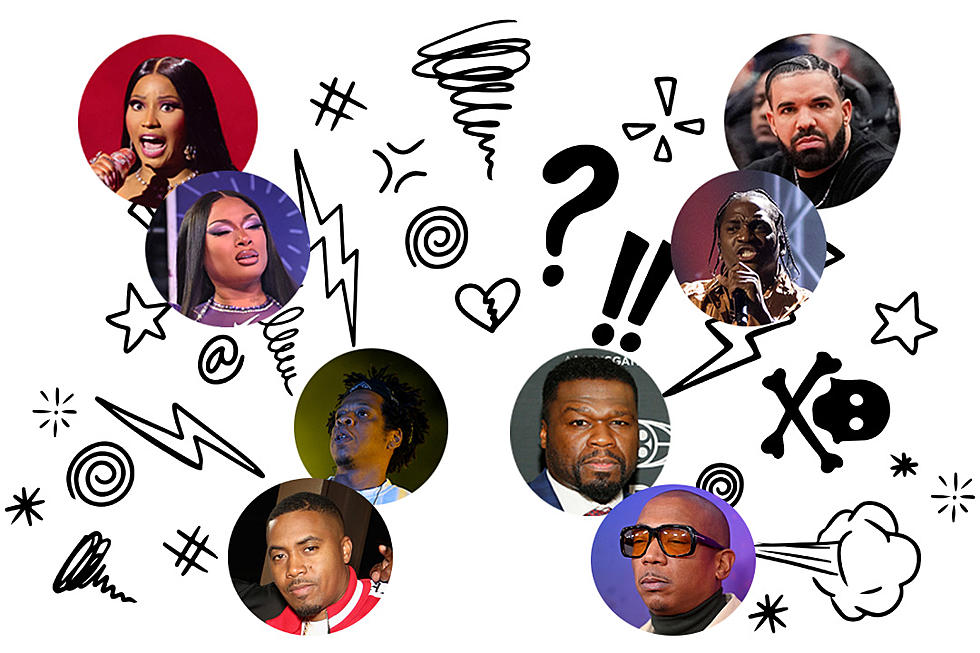![Lupe Fiasco “Hit the Lights” [May 2011 Cover Story Excerpt]](http://townsquare.media/site/812/files/2011/04/XXL-lupeShot-Magic-hands-color-flat-620x464.jpg?w=980&q=75)
Lupe Fiasco “Hit the Lights” [May 2011 Cover Story Excerpt]
WORDS BY THOMAS GOLIOANOPOULOS
**THIS STORY ORIGINALLY APPEARS IN THE MAY 2011 ISSUE OF XXL ON SALE NOW**
Back in 2009, when Lupe Fiasco was in the middle of recording his third album, at the Record Plant in Los Angeles, his label, Atlantic Records, froze his entire budget. Executives were unhappy with his version of “Nothin’ on You,” a no-brainer No. 1 smash the label had gift wrapped for Lupe, so they requested a meeting with him in New York. The summit took place on a Sunday night at Chin Chins, the Midtown Manhattan Chinese restaurant favored by Mafia wannabes and expense-account-brandishing power brokers. Atlantic Records Chairman and CEO Craig Kallman and Chairwoman and COO Julie Greenwald joined Lupe, his assistant and a cell phone that was placed in the middle of the table. On speaker was Lupe’s manager and business partner, Charles “Chilly” Patton, who is serving a 44-year prison sentence on drug charges.
Lupe set the tone by leaving on his coat. He also didn’t order food. From there, it unraveled. According to Lupe, Kallman took a personal swipe. “We talked to the producers, and they said your verses were wack,” Kallman said, as Lupe remembers it. “Yo, your verses were wack.” (Label reps were unavailable for comment.)
This is the kind of criticism that can shatter a sensitive artist, and the 29-year-old rapper from Chicago says he later contemplated suicide. “It follows you everywhere,” he tells of the depression that overtook him. “The way you rationalize things gets titled through that mentality.” In the song “Beautiful Lasers,” which would finally see the light of day early this year, Lupe mentions keeping a gun on his table. “That was literal.
I own a ton of them.” The album, mostly complete, but without a release date set, languished. Months passed.
Things started to turn around for Lupe in late 2010, even as “Nothin’ on You” slipped from his fingers and became the breakout hit for Atlantic rookie B.o.B. An online petition demanding the release of Lupe’s album collected more than 33,000 signatures, and in October, fans organized a rally outside of Atlantic Records’ New York offices. It was dubbed Fiasco Friday. The prospect of thousands of chanting, shouting Lupe loyalists helped convince the label to put more effort into working things out with its artist, and a solid release date was finally set. The album, Lasers, would come out March 8, 2011.
Not that everything was rainbows and unicorns. As recently as February 28, just a week before the album was due to hit stores, Lupe was venting to the press. “When I think about what it took to actually get the record together,” he said to Complex.com, “and everything that I went through on this record—which is something I can’t separate—I hate this album.” So it came as a major surprise to a lot of people when, come the week of March 8, Lasers arrived and sold more than 200,000 copies, far surpassing industry predictions, and debuting atop Billboard’s album charts. Lupe’s reaction? Borderline apathy. “I wasn’t completely overwhelmed, because now I have to go into the business meetings,” he says. “Now I’m waiting for, ‘If you didn’t say you hated the album in that interview, we would have done 300,000.’”
Lupe sits in a photo studio on the west side of Chicago, just six blocks from his childhood home. Despite a quick touch-up, his hair is unruly, and his mustache is boyishly wispy. Still, on this afternoon, Lupe is stern, weary, cautious, a little paranoid and all about his business. The only gasp of humor in the room is his T-shirt, which quotes a line from the 1966 Paul Newman film Harper: “Only cream and bastards rise to the top.”
Lupe’s proud that he repaid Lasers’ $700,000 budget. He then spouts numbers and calculates his earnings from preorders and sales of the first single, “The Show Goes On,” a song that was the latest sticking point between him and Atlantic, following the “Nothin’ on You” debacle. “For everything good there is something bad,” he says about the impending meetings. “Yin and yang. There are always two forces operating at the same time. Cool, I’m happy, but I’m still mad at my record company.” He flashes a mischievous smile. Lupe Fiasco isn’t going to let a No. 1 album wrest control of his narrative.
In hip-hop’s latest battle between art and commerce, consider this one a draw. Lasers garnered the highest-selling first-week numbers of Lupe’s career, but it came with some pretty terrible reviews. (“Forgettable,” said The Washington Post; “Chaotic, bored and unyieldingly abrasive,” Pitchfork; “A compromise,” Los Angeles Times. In all, Lasers scored a 57 out of 100 at the reviews-averaging site Metacritic.) Now, with this chapter of his career closing, Lupe Fiasco, one of the most talented, ambitious and polarizing artists in hip-hop, holds onto one goal: using his music to make the world a better place.
FOR MORE LUPE FIASCO, GO TO PAGE 2
Growing up on Madison Street, on Chicago’s west side, was tough for Lupe Fiasco, born Wasalu Muhammad Jaco. “There used to be drive-bys here,” he says of the neighborhood outside the photography studio. “On the other side of Madison, you have Rockville Gardens, and that used to be the most terrible place on Earth.” He remembers the June 1991 night when Michael Jordan’s Chicago Bulls won their first NBA championship and rioters burned down a convenience store in Rockville Gardens.
As a child, Lupe was interested in martial arts, chess and guns. “When I was four years old, my father was teaching us how to shoot AK-47s and how to strip an M-16,” he says. “When we were little kids, it was all about weapons. My father used to sell guns.” Also an engineer and a martial-arts teacher, the senior Jaco, Gregory, died in February 2007 from diabetes.
Lupe got into hip-hop as a teenager, listening to Spice 1, 8 Ball & MJG, N.W.A and Nas, whose It Was Written was his favorite album. He joined the rap group Da Pak (not to be confused with the Bay Area quartet that spawned Lil B), which signed to Epic Records and disbanded after releasing their first single. He then linked with Arista Records as a solo artist, idling there until L.A. Reid’s firing in 2004, and eventually landed at Atlantic Records.
Lupe made a buzz with a trio of mixtapes, the Fahrenheit 1/15 series. And his nifty cameo on Kanye West’s 2005 single “Touch the Sky” paved the way for his critically acclaimed debut album, Lupe Fiasco’s Food and Liquor, released in September 2006. His next effort, Lupe Fiasco’s The Cool, topped its predecessor in sales and scope. Its lead single, “Superstar,” reached No. 10 on the Billboard Hot 100 chart, and the album sold more than 700,000 copies. Aside from “Superstar,” however, The Cool was a heady, nonconformist album with songs touching on such heavy topics as child soldiers in Africa (“Little Weapon”), rape (“Intruder, Alert”), the apocalypse (“Streets on Fire”) and his own artistic principals (“Dumb It Down”).
Heading into his third album, Atlantic executives told him the company wanted to see “growth,” which is a euphemism for “reaching a broader audience.” “The hardcore Lupe fan [loves] ‘Dumb It Down,’” says Darrale Jones, Atlantic VP of A&R. “But ‘Superstar’ was a smash. Any record company would see that and say, ‘We need to be there.’”
According to Jones, the first incarnation of Lasers baffled the Atlantic brass present at its unveiling. “All the top executives were in that meeting,” he says. “After the music stopped, it was kind of quiet. People looked around the room and were like, ‘Okay, this is Lasers.’ Lupe didn’t feel the excitement he was looking for.”
Lupe says he complied with his label after early buzz records “Shining Down” and “I’m Beaming” bombed at radio. “If you want me to do that, I’ll do that,” he says of making records aimed at the pop charts. “I’ll make it cheaper. I’ll make it conducive to all parties—publishing, royalties.”
Business concerns, as opposed to matters of artistic integrity, are what made Lupe feel blasé about “Nothin’ on You.” The song was written and produced by The Smeezingtons, an outfit led by Atlantic’s pop singer Bruno Mars. “I understand what you guys are doing with this stable of writers and producers that are specifically signed to the company,” he says. “That smells fishy.”
Lupe and Atlantic reached a compromise in October 2010, after, he says, he agreed to include “The Show Goes On” and “Never Forget You” on the album. “It was done at gunpoint,” he says. Lupe says the label insisted on the former because producer Kane Beatz is signed to Artists Publishing Group, a music-publishing company that is a joint venture with Atlantic Records and is administered by Warner/Chappell publishing. “I work with Atlantic a lot and with a lot of artists they produce,” says Kane Beatz. “You never know. It was a great record, and I think when it came, it definitely provided an opportunity for him to get his music out.”
Lupe insists the song wasn’t successful and has relentlessly bashed it in interviews. “‘Superstar’ charted way higher than ‘Show Goes On,’” he says. “They still can’t understand me. They still don’t get it. They still don’t understand that, even without a hit record, Lupe Fiasco will be just as relevant and just as successful as the dude with the hit record. They just don’t get that.”
**TO READ THE REST OF LUPE FIASCO’s COVER STORY, PICK UP THE MAY 2011 ISSUE OF XXL. ON SALE NOW.*
More From XXL




